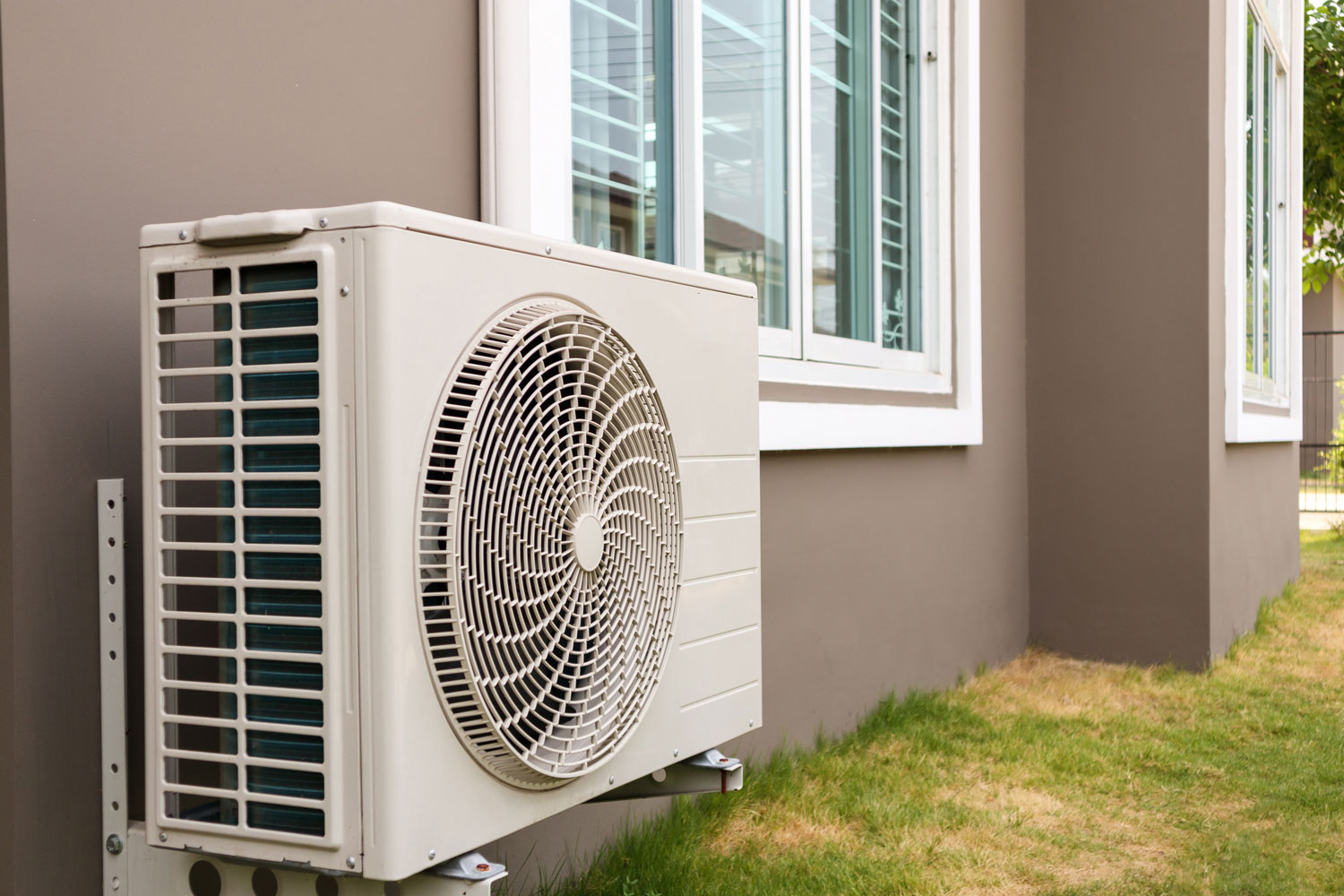If you notice that your air conditioner turns on and off repeatedly, you should not ignore it and take action immediately. We thoroughly researched the answers to why it does such a thing and what you should do to settle it.
Your air conditioning unit turns on and off repeatedly, likely because of one or more of the following factors:
- Compressor failure
- Refrigerant problems
- Frozen evaporator coils
- The location of the thermostat is not appropriate
- The cooling system is too big
- The thermostat is malfunctioning
- The condenser coils are dirty
- The air conditioner has run capacitor issues
- Electrical problems
- Dirty air filter
- Clogged drain line
Please keep reading and let us review these factors on how it affects the performance of your air conditioning unit. Also, this post can help you address the problem correctly.
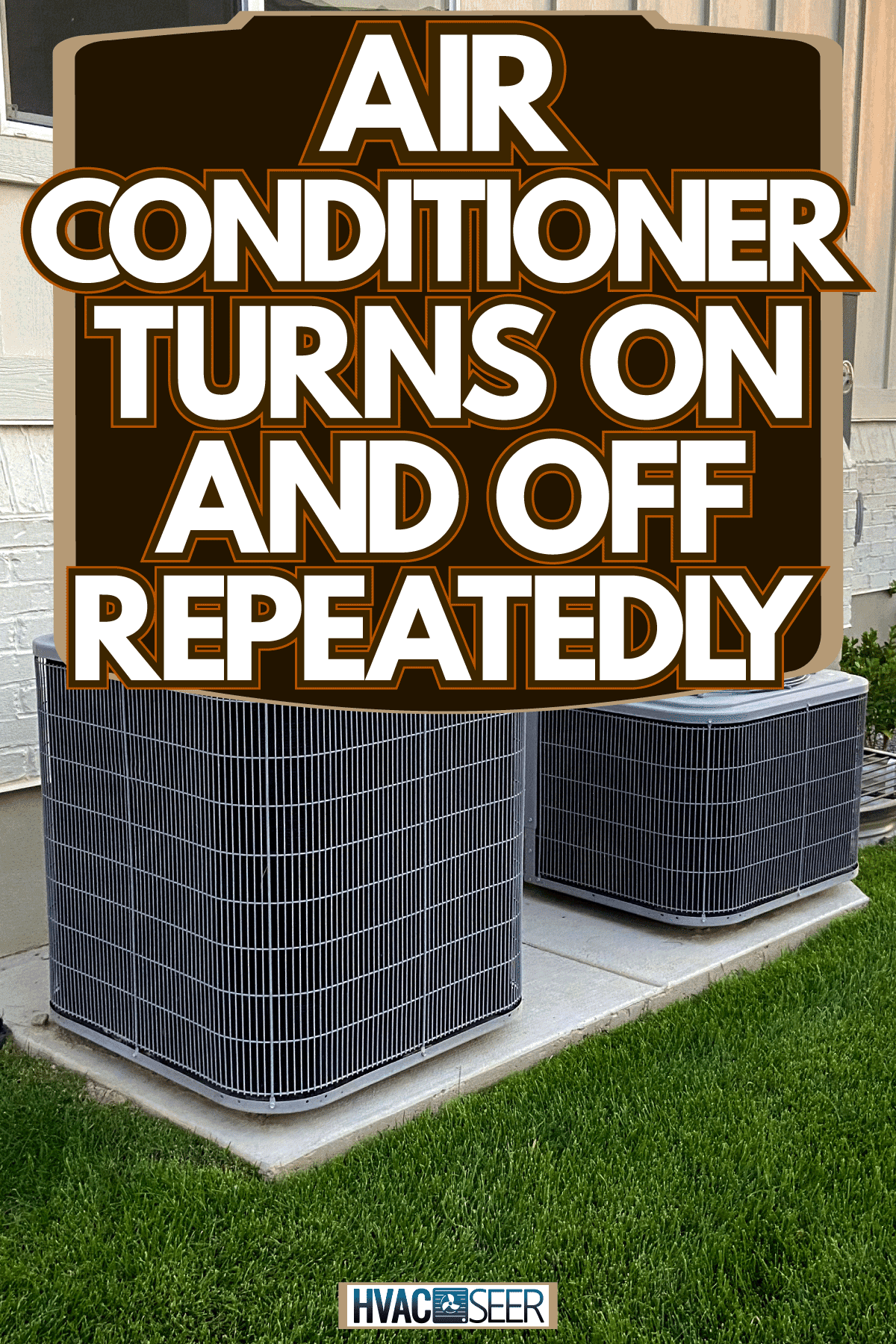
Why Does The Air Conditioner Turn On And Off Repeatedly?
A stubborn air conditioner that keeps switching on and off is harmful to its system and the homeowners. And if you don't handle it as early as you can, it might produce further damage. So, for you to know what to examine, here are the details:
1. Compressor Failure
If the air conditioner's compressor is malfunctioning, overheating, or starting to fail, it will develop a frequent system shut off and shortly starts backing up. If you detect that the compressor is shutting off every two to three minutes of operation, it is most likely starting to fail.
Solution:
We suggest you contact an HVAC professional to fix your air conditioning unit. A compressor is not something you should fix by only a DIY method. And if it is not working correctly, you need to replace it immediately to avoid causing wear and tear and degrading other parts of the unit.
2. Refrigerant Problem
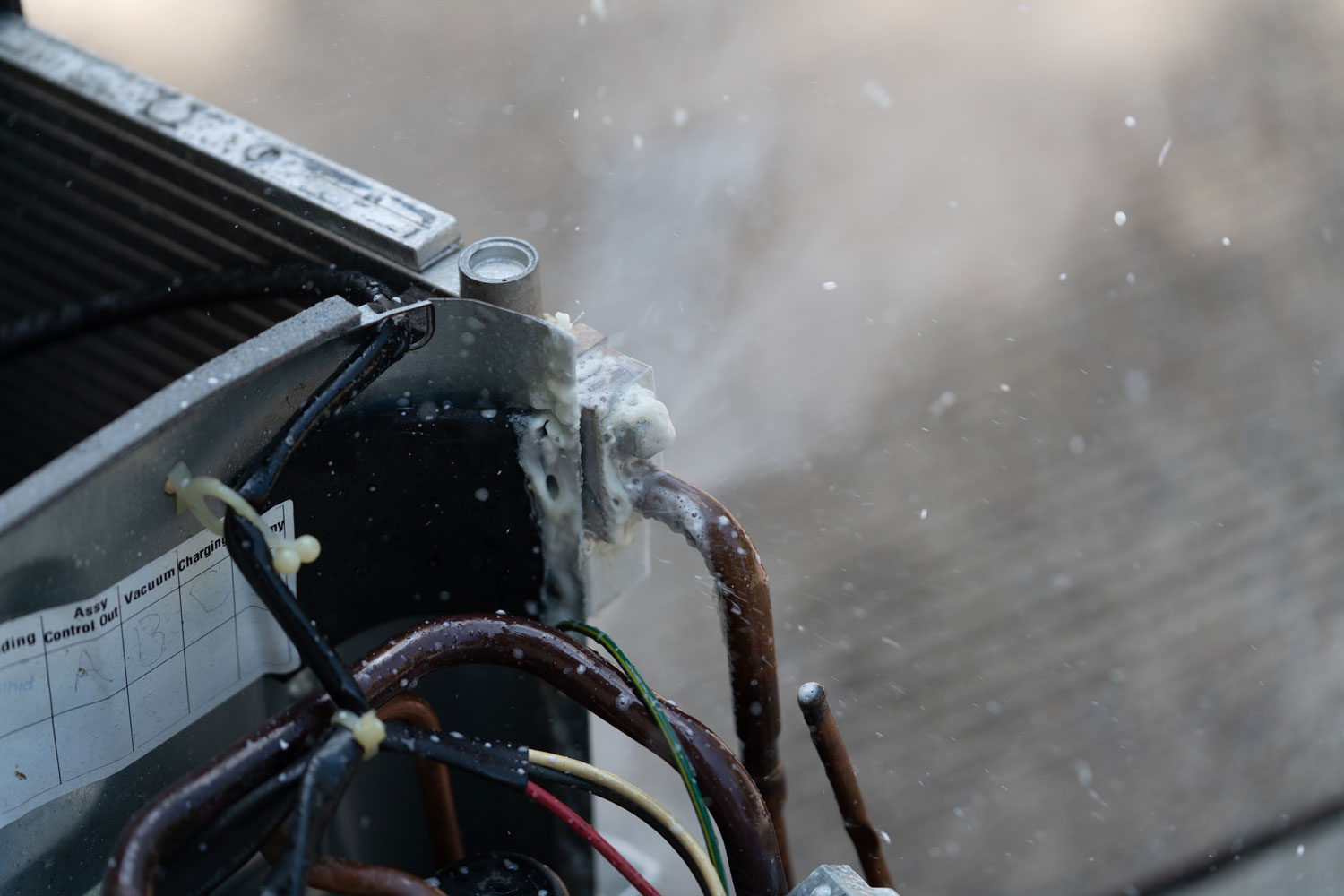
Refrigerant is circulated through your air conditioner to cool the outside environment. If a refrigerant leak is ongoing, the air conditioning unit might be encountering low refrigerant.
This fluid does not get used up, as some might mistakenly think. However, the refrigerant can leak through even the tiniest holes in the system.
So, if the unit lacks refrigerant, expect the compressor to misbehave and shut itself off because of insufficient pressure. And if the compressor goes off, anticipate that the pressure will increase and turn the unit on again. This issue undoubtedly produces a short cycle that causes wears down the AC unit.
Solution:
We consider this the most hazardous air conditioner issue, so we recommend you call a professional to fix this case immediately.
3. Frozen Evaporator Coils
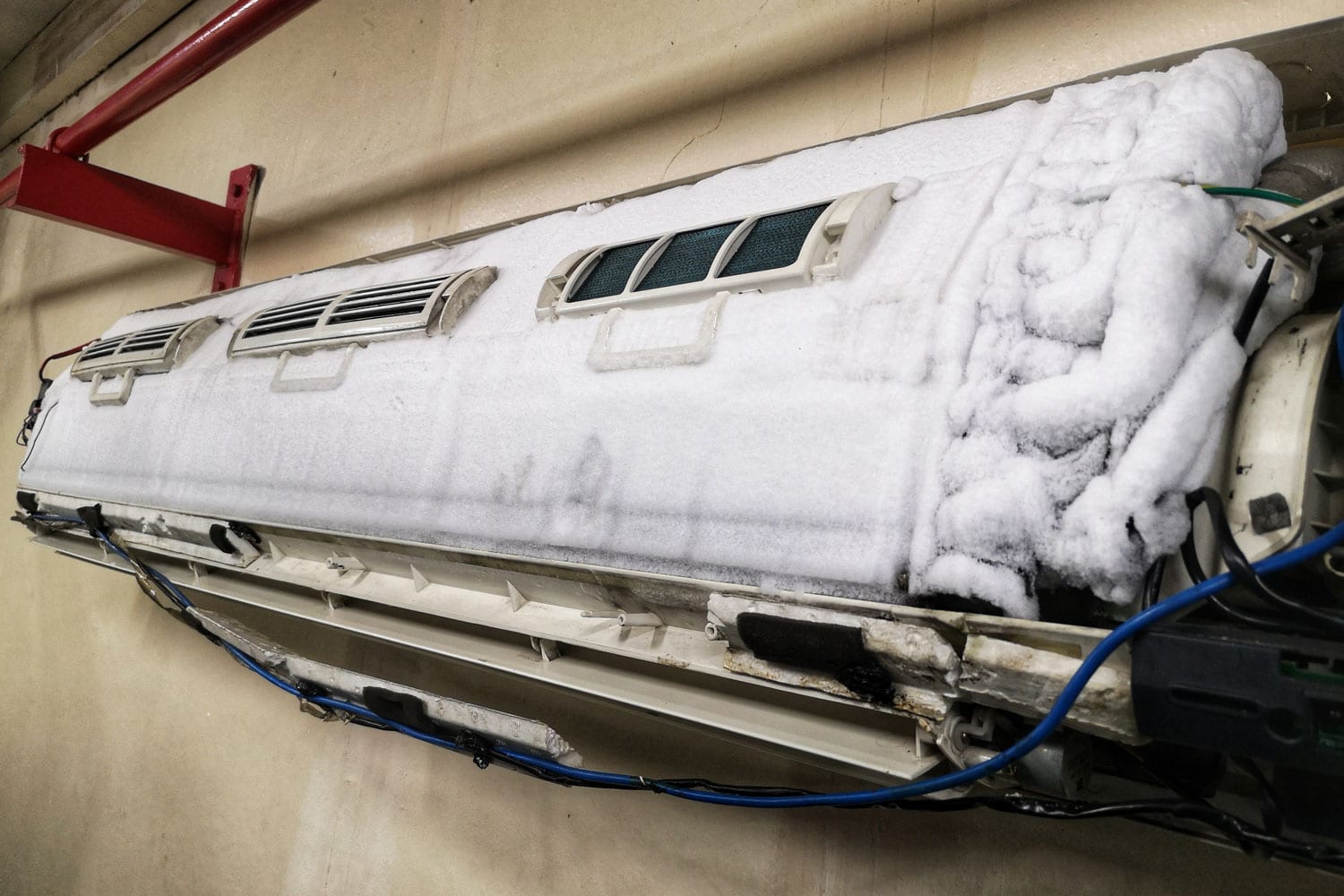
If your air conditioning system has a problem with airflow or refrigerant leaks, its evaporator coils may be freezing up. And when this happens, the air conditioner's system or its outside unit will switch off and turn on if the ice thaws.
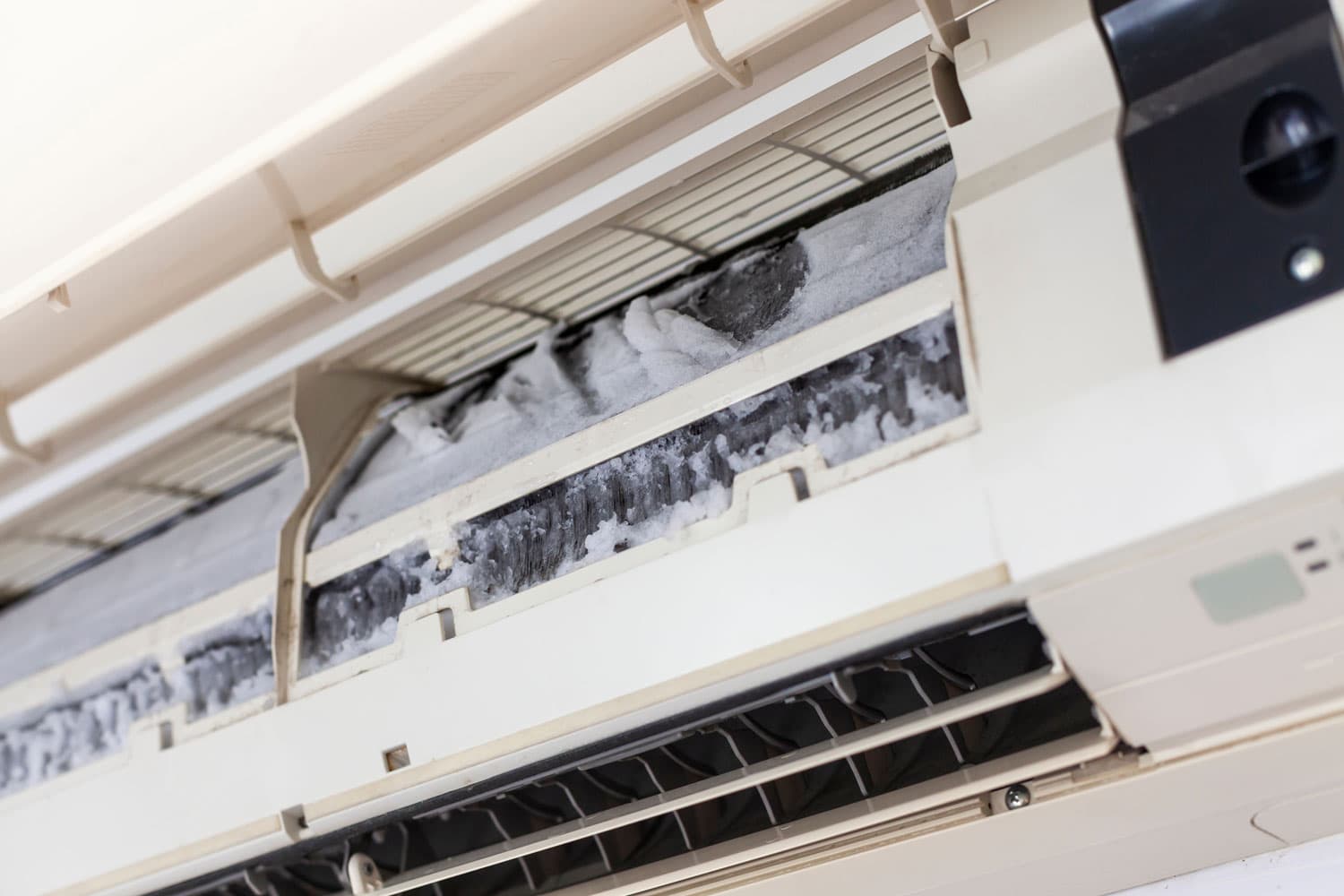
Solution:
Inspect the outdoor unit if there is an ice build-up. If there is, you might want to call an HVAC professional immediately to repair it quickly and avoid further damage.
4. The Location Of The Thermostat Is Not Appropriate
It is widely known that if you place the thermostat in an improper location, it will have inaccurate readings. For example, when you locate the thermostat:
- Close to a room that has a higher temperature than the entire house (kitchen or bathroom)
- Underneath the supply air vents; receiving direct airflow
- Close to a window that receives direct sunlight
These factors could push your thermostat to receive inaccurate and poor readings.
Solution:
Relocate your thermostat to a centralized and better location.
5. The Cooling System Is Too Big
If your air conditioning system is oversized, it won't produce a proper refrigerant cycle and will lead to air conditioning issues. You think it is good that your huge air conditioner cools your entire house quickly, but the real thing is, it is not because larger systems turn on or off earlier than needed.
In addition, a unit that is too huge for the dimensions of your home can produce more significant problems, such as:
- Higher energy bills, since continuous switching on and off uses more energy
- It will lead to more repairs due to excess wear on the parts
- More wear means a shorter lifespan
Solution:
You can ask an HVAC professional for the appropriate sizing of the air conditioner for your home. Also, you can opt to use an air conditioner sizing calculator to determine what air conditioner size is suitable for the dimensions of your home.
6. The Thermostat Is Malfunctioning
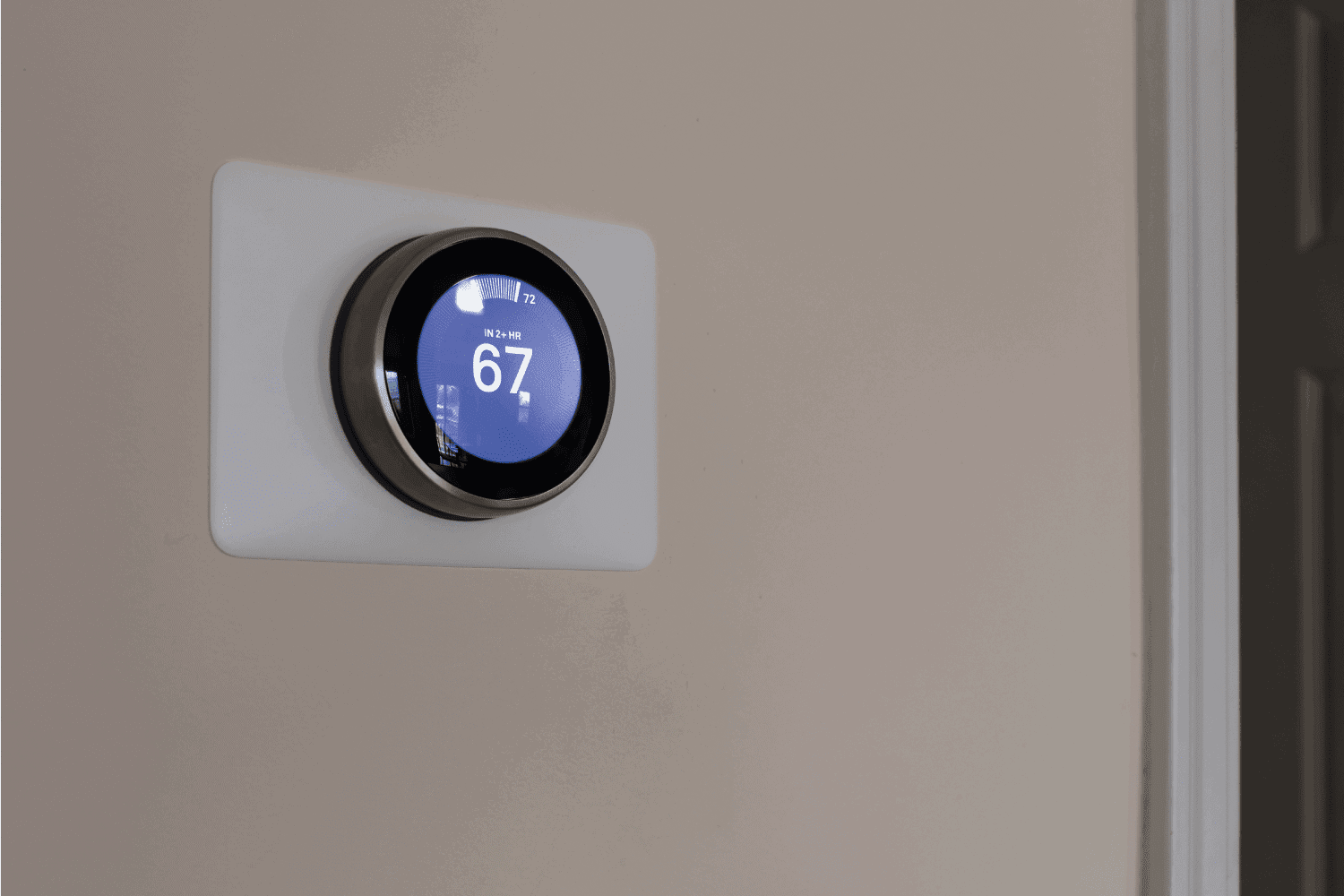
The thermostat monitors the entire home's temperature to control the AC cycles. Suppose your thermostat senses inaccurate temperature and transmits misinformation to the air conditioning unit; that's when it can instruct the system to turn on and off repeatedly depending on the temperature fluctuations.
Additionally, if you notice that the screen of your thermostat is fading or, worse, empty, it may be a low battery issue. So, you might want to check on that also.
Solution:
Change the thermostat batteries and check if that is the root of the problem by restarting it. If it doesn't fix your problem, consider reaching a professional to analyze the thermostat quickly.
Read more about: "Thermostat Won't Go Above 70 – What To Do?"
7. The Condenser Coils Are Dirty
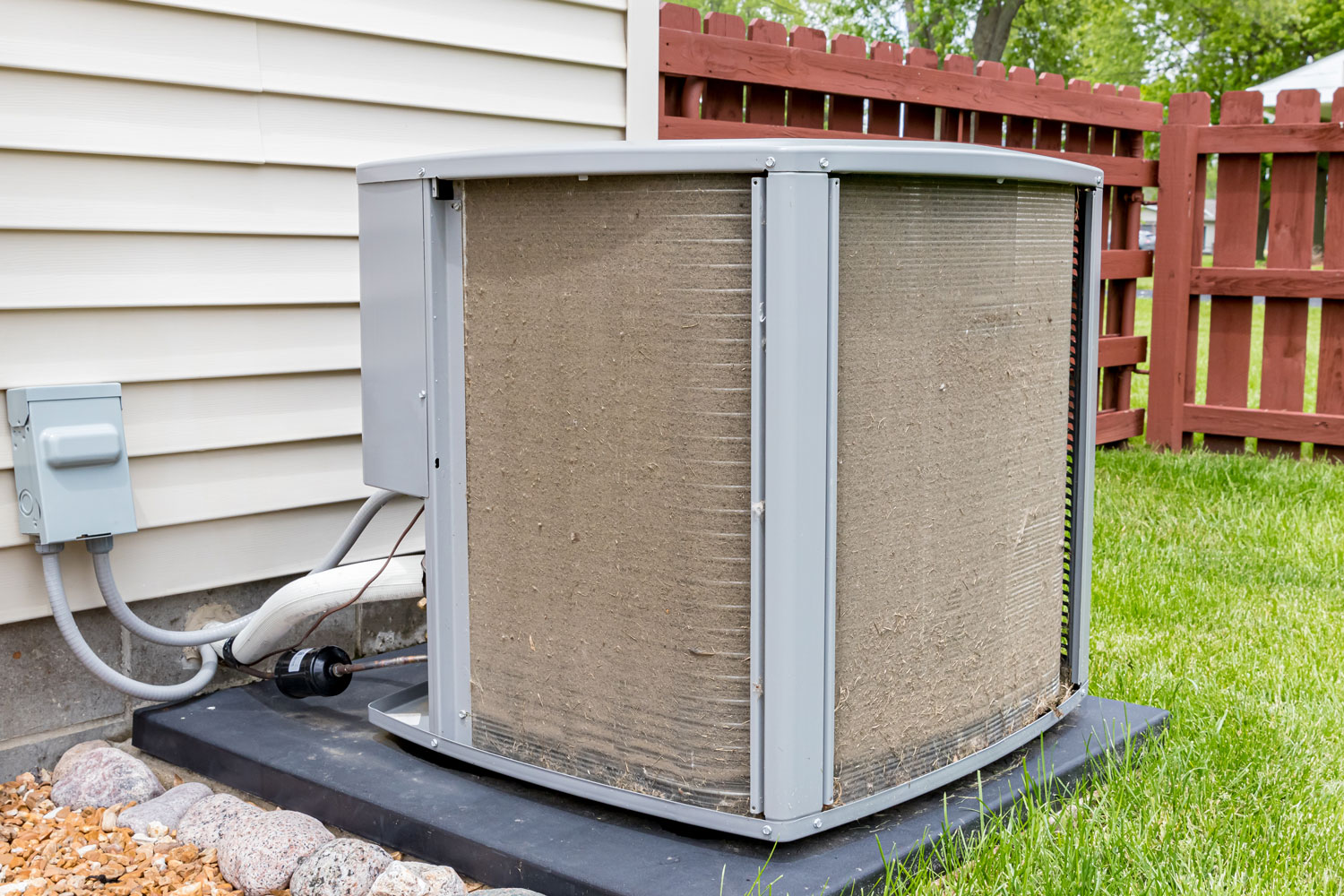
Condensercoils can quickly accumulate dirt and debris. That is why we always recommend having regular cleaning and maintenance. If they are clogged with too much dirt, expect the system to overheat. Also, the continuous short cycling will continue.
Solution:
Clean the condenser coils as early as possible and have annual maintenance for your air conditioning unit.
8. The Air Conditioner Has Run Capacitor Issues
When your air conditioner unit's run capacitor starts to run poorly, it can lead to an irregular supply of power to your unit. That is what causes it to turn off unavoidably and then back on.
You can notice a problem with the run capacitor if the air conditioner starts then stops after only 30 seconds.
Solution:
You will need the help of an HVAC professional to fix this problem. Note that replacing the run capacitor is the only solution to this problem. Also, if you ignore this issue, it might cause other parts to deteriorate quickly.
9. Electrical Problems
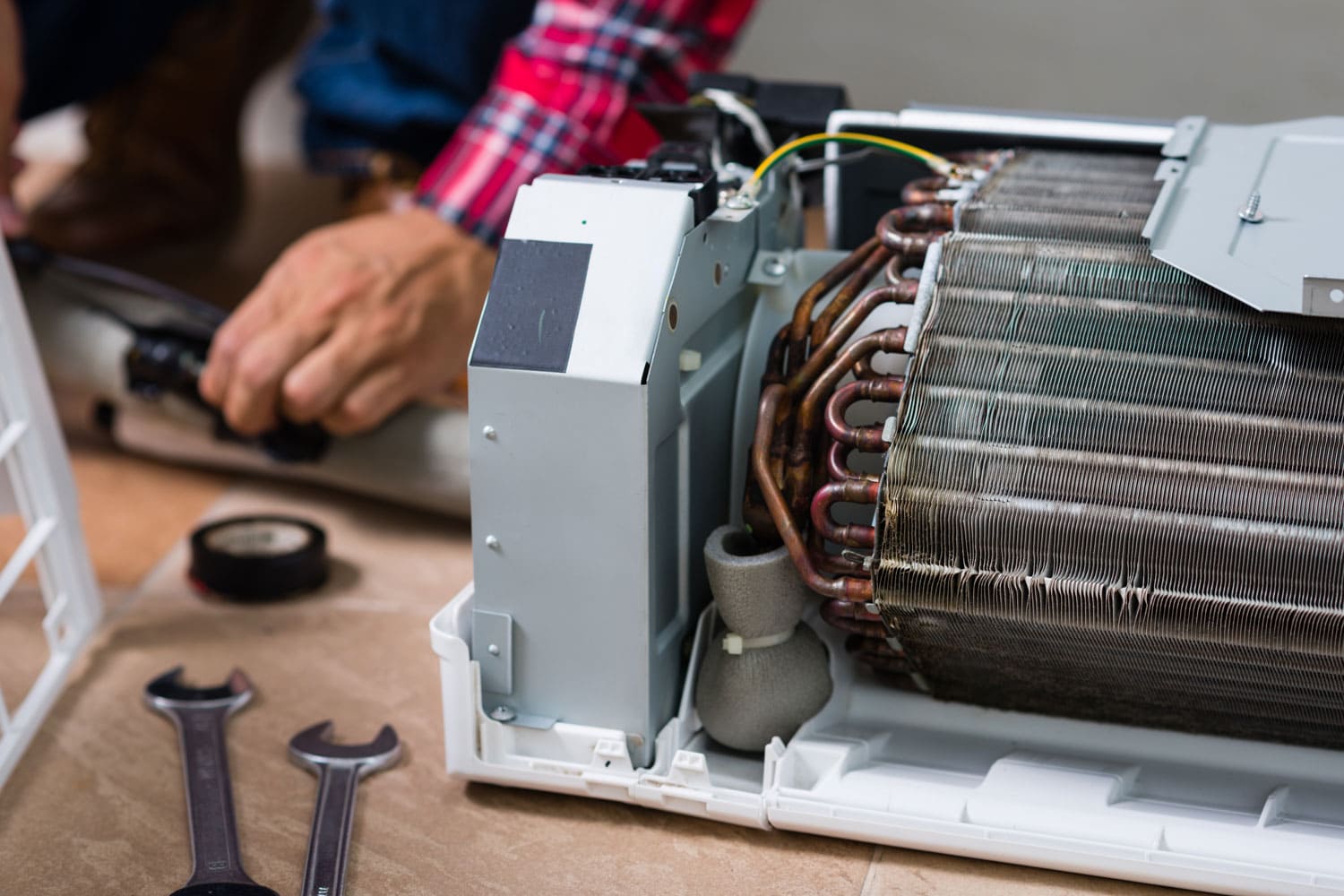
It is the most common cause of short cycling. There is a possibility that the capacitor or electrical supply line is failing or broken, but the air conditioning system could also have an electrical problem because of the thermostat. It can also be from the circuit boards or electrical connections anywhere in the unit's system.
Solution:
You may want to call for a professional electrician's help. It is difficult to diagnose and dangerous even if you know how to fix such a thing.
10. Dirty Air Filters
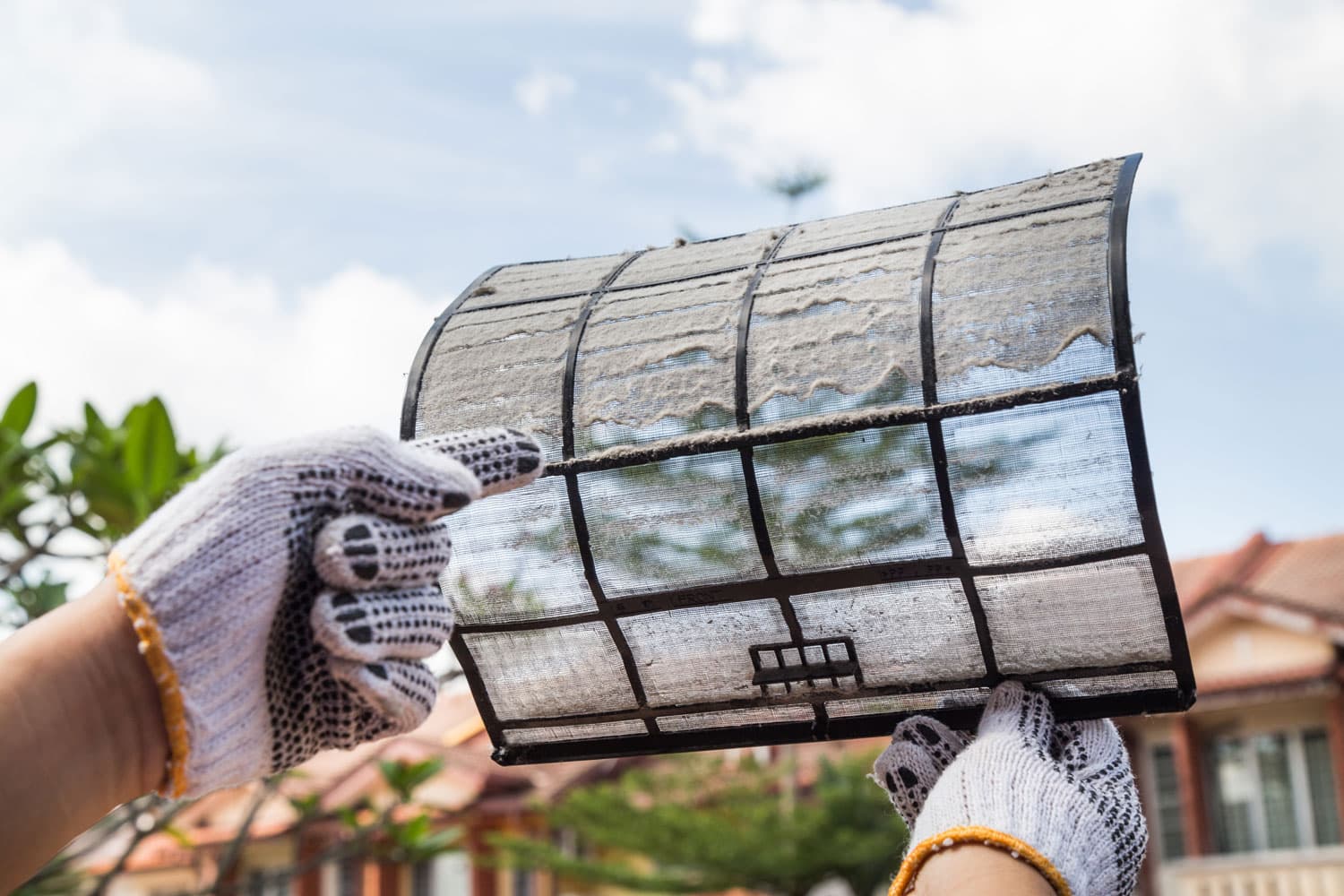
Air filters that are clogged are the most familiar reasons for air conditioner issues. Dirty air filters limit the airflow of your air conditioning system and can also cause multiple problems, including short cycling.
Solution:
Inspect the air filters, and if you find them dirty, clean them as soon as possible to avoid further damage.
11. Clogged Drain Line
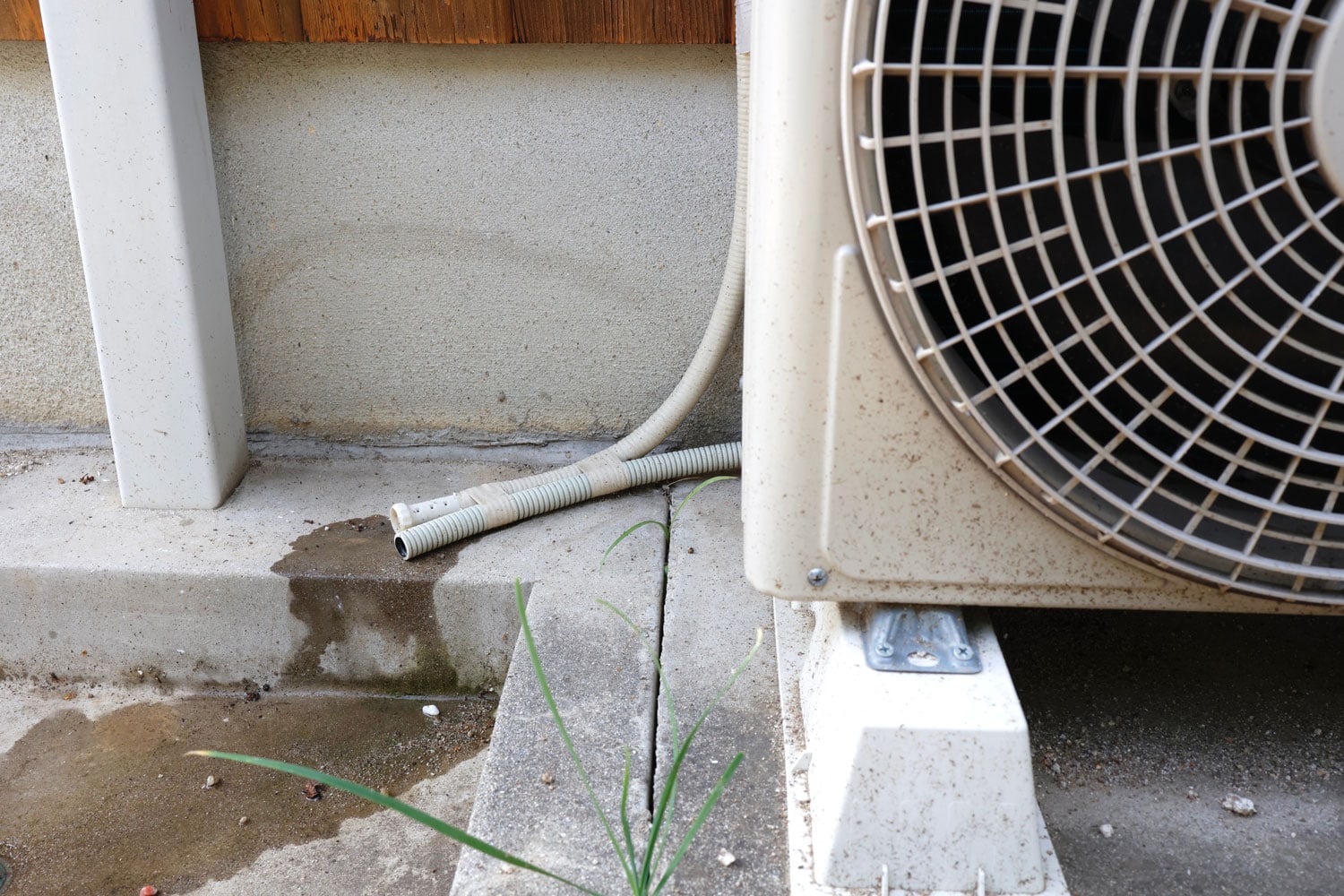
Nowadays, most air conditioner units have a float switch; a safety feature will turn your system off when the drain line is not draining the water properly and backs up.
Try to notice when you turn the thermostat to "AUTO" and the air doesn't circulate; this is probably the issue.
Solution:
Read this post for the guide on "How To Clear An AC Condensate Line."
How To Maintain Your Air Conditioner
We provide you with these specific maintenance steps to help you extend the lifespan of your air conditioners and avoid future problems.
How To Maintain The Air Conditioner's Compressor
- Clear any obstruction
- Cover the compressor when not in use
- Clean the air filters regularly
- Turn on the high-pressure switch
- Clean the condenser coils regularly
How To Maintain The Air Filters
- Remove the filter
- Apply cleaning solution
- Rinse
- Dry
- Re-oil the filter
How To Maintain Condenser Coils
- Turn the air conditioning system
- Clear all the plants and weeds surrounding the outdoor unit
- Vacuum loose debris
- Spray the condenser coil with a cleaning solution
- Flush the coil with water
- Comb the fins of the condenser coil
How To Maintain The Air Conditioner's Drain Line
- Turn off the air conditioner
- Look for the drain line and remove its cap
- Pour the cleaning solution (a mix of water and vinegar)
- Flush the pipe with plenty of water
- Double-check if the drain line is free from dirt and clogs.
Wrapping Things Up
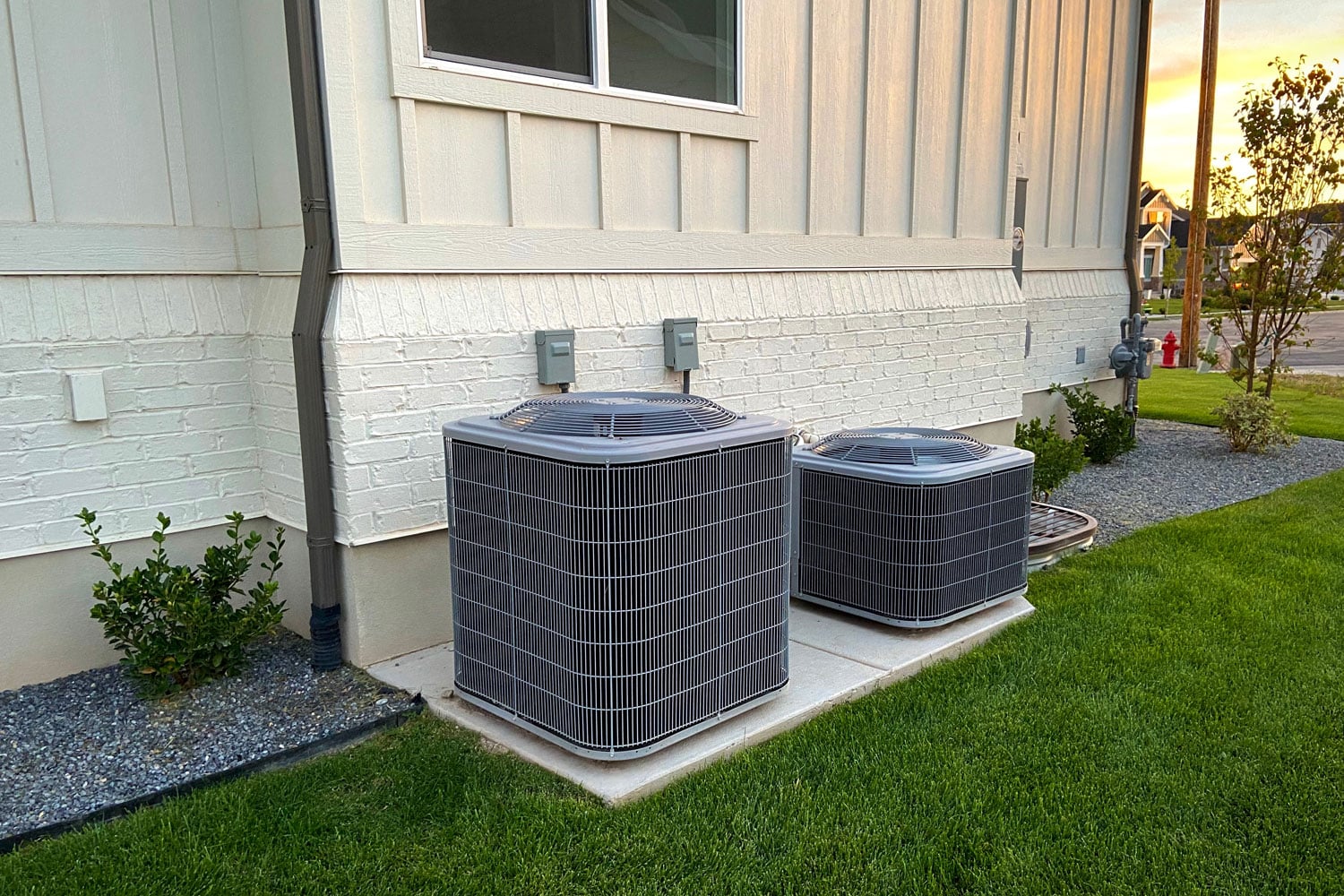
Don't let your air conditioner produce more issues. If you can fix it or let an HVAC professional do the work for you, don't think too long and do it immediately. Doing so can also help you prevent future air conditioning issues. Always remember that prevention is better than cure. So, don't let yourself pay for costly repairs; maintain your air conditioner well!
For further reading, you might want to check more of our posts:
Air Conditioner Delayed Start – Why And How To Fix
How Far Should A Thermostat Be From Return Air Or Furnace?

